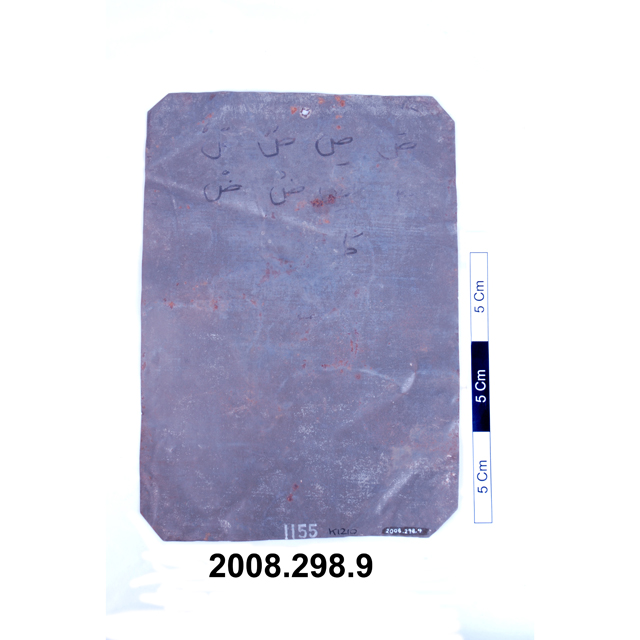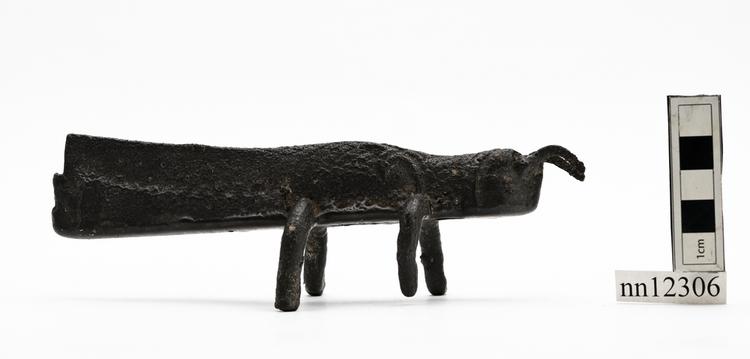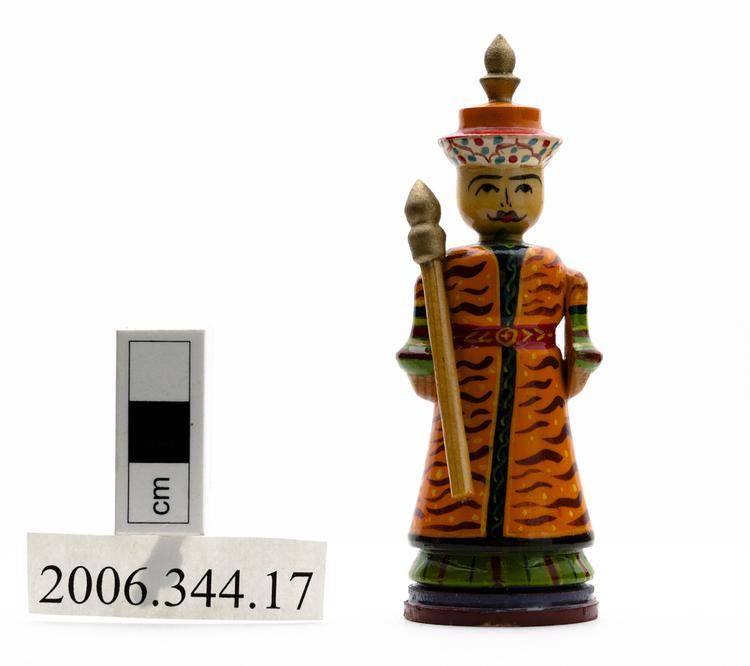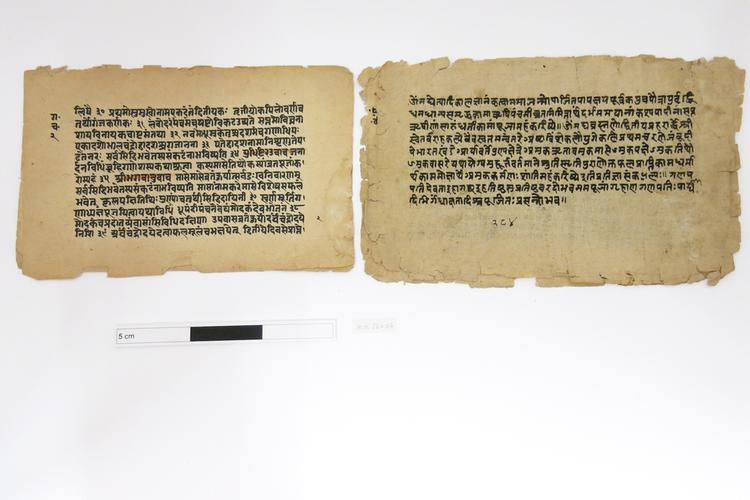
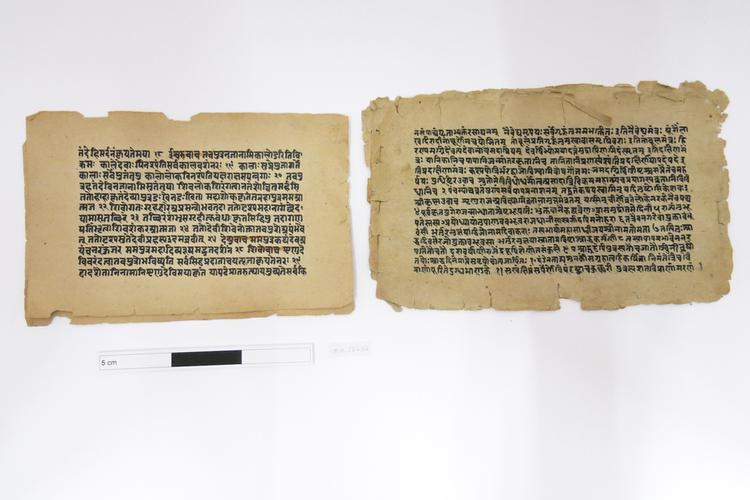
Sanskrit manuscript written in the Nagari script. Contains dialogues between Yudhiṣṭhira and Bhagavān and between Devī and Śiva.
Where I have gone to the trouble of transcribing specimens, I have included the result, without ever feeling that to translate it would serve any useful purpose. The amount of square-bracketing will show you how defectively copied such manuscripts invariably are (amulets or aides-memoire, rather than normal literature). The Skt Vaidyajivana and Viratantra, etc., and the Bundeli Hindi Rasikapriya are known literary works. (but I haven't tried to locate and compare published editions). The fact that we have Tamil grantha, Panjabi gurmukhi, and Kashmiri sharada scripts to contend with, as well as various versions of nagari, limits my powers. I have little to contribute on the Grantha and Sharada: I don't think the results would make it worth while my practicing them to gain fluency. One has to face it, these are no literary-historical treasures, but the ill-copied remnants of pandits' and priests' late medieval stock-in-trade. And the generation that still had insightful links with that past has died out during my lifetime The one text that could, with not too much effort, be matched up with published versions is the Rasikapriya. The others are, so far as I know, titles and authors traceable only in MS catalogues, and are such that, e.g., your grammatical Siddhantacandrika of Ramasrama bears a title that occurs attributed to some other author's name in a catalogue: this doesn't, however, preclude its being the same text. The pandit who owned it would have had no need to read, and wouldn't necessarily have been able to understand, this treatise on the present tense of the verb 'to be' (etc.?): but will have been proud to own it and preserve it - for a posterity that sadly has no further use for it.



